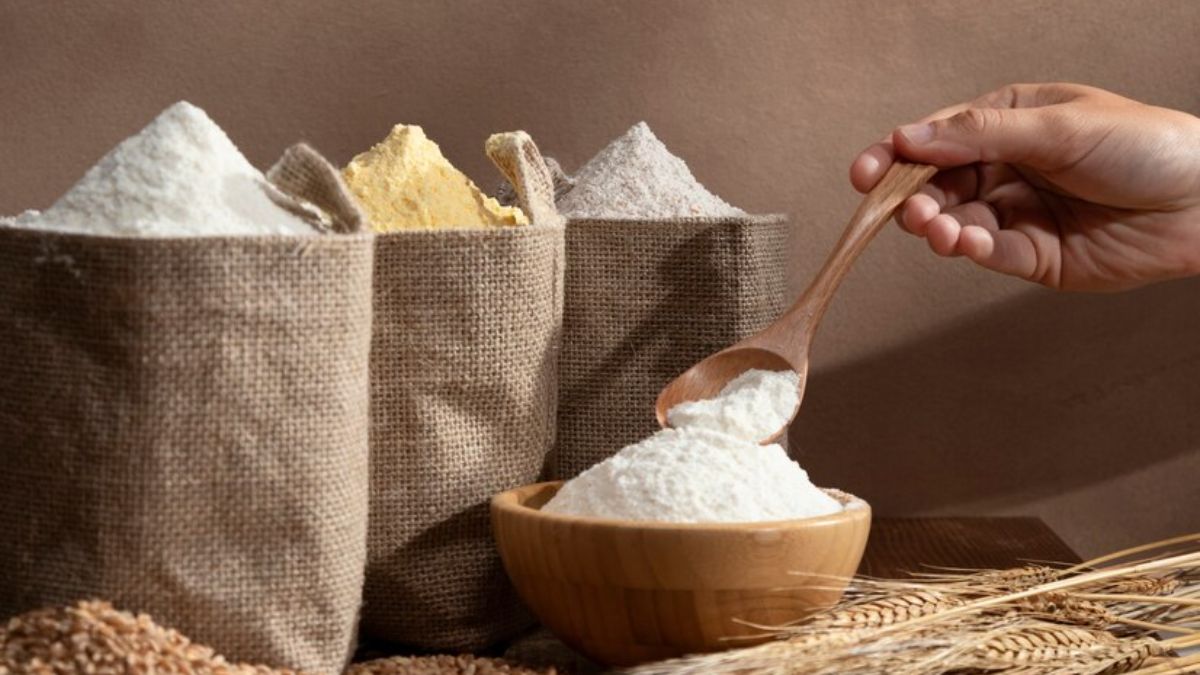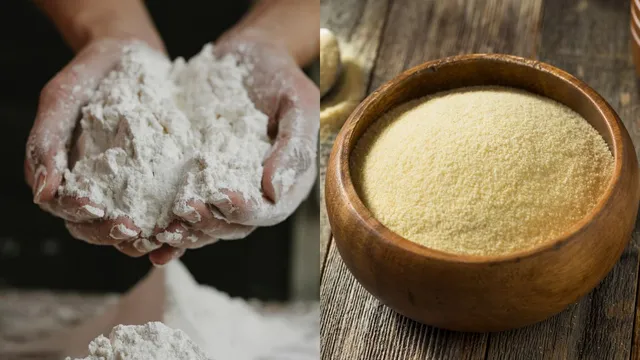- By Prerna Targhotra
- Tue, 22 Oct 2024 01:18 PM (IST)
- Source:JND
Wheat vs Sooji: In the realm of nutrition, we try to choose the best sources for healthy weight loss, blood sugar management and overall health. Choosing between wheat and sooji is one of the common debates between fitness enthusiasts. Wheat is a common dietary staple that has incredible health benefits but is also linked to wheat diseases and celiac diseases.
The high amounts of gluten in wheat may cause several side effects and harm one’s health in the long run. Whereas, sooji is another well-known staple that is prepared by passing wheat through the mill for coarser grain. Let’s understand the health benefits and side effects of wheat and sooji to make your decision-making easier.
Benefits Of Wheat
According to WebMD, wheat contains many minerals. The concentration of minerals in wheat is determined by the type, soil, climate, and agricultural practices, such as organic farming. Whole wheat flour is richer in minerals and vitamins than white flour. Every cell in your body contains protein. Protein is made up of amino acids. Your body makes most of the amino acids it needs, but nine of them must come from the food you eat. They also contain antioxidants that may prevent or delay cell damage caused by free radicals.
Side Effects Of Wheat
Wheat contains gluten that may cause harmful side effects in people who consume it in excessive amounts. Some people may experience wheat allergies that may cause symptoms like hives, rash, swelling, itching, or irritation of the mouth or throat, nasal congestion, headache, difficulty breathing, cramps, nausea or vomiting, diarrhoea and anaphylaxis.

Side Effects Of Wheat (Image Credits: Canva)
Benefits Of Sooji
Sooji or semolina is low in calories which makes it a great weight loss substitute. It is an excellent source of fibre and magnesium that can lower the risk of heart disease, improve blood sugar levels and reduce the risk of diabetes.
The presence of fibre in sooji promotes easy digestion and maintains the body's energy levels. Sooji is also a good source of protein that may improve the texture and flavours of dishes it is used in.
Side Effects Of Sooji
People with wheat allergy should avoid consuming semolina as it may cause allergic reactions like nausea, sneezing, headaches and diarrhoea.
ALSO READ: Weight Loss At Home: 5 Tips And Tricks To Follow Daily To Shed Extra Fat
ALSO READ: Why Your Weight Isn't Increasing Despite Healthy Diet? Know From Expert
(Disclaimer: This article is for informational purposes only. It is not a substitute for professional advice, diagnosis or treatment.)

